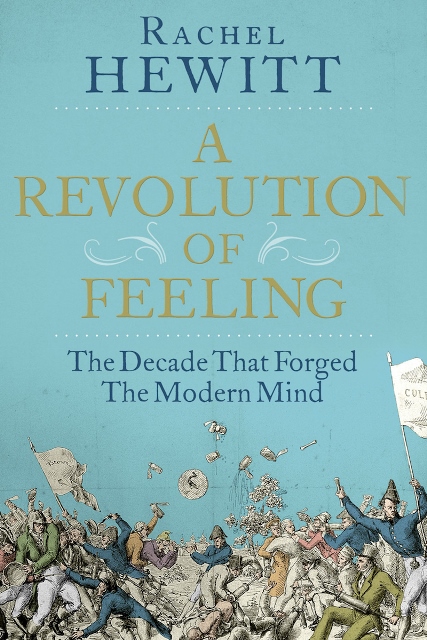Utopias have a way of going up in flames. Rachel Hewitt’s new book, A Revolution of Feeling: The Decade that Forged the Modern Mind, charts the revolutionary fervour and disappointment provoked over the course of the 1790s by looking at the decade through the biographies of five of its optimistic luminaries — Samuel Taylor Coleridge, Mary Wollstonecraft, William Godwin, Thomas Beddoes, and Thomas Wedgwood.
Over the course of this decade, the French Revolution broke out to great enthusiasm before souring into the Terror during which killed thousands; war with France was declared; Beddoes and Humphrey Davy experimented with nitrous oxide heralding the first steps towards modern surgery; Mary Wollstonecraft’s A Vindication of the Rights of Woman was published; William Pitt the Younger’s Gagging Acts came into force, precipitating the foundation of the Whig party; and the Romantic sensibility was born out of the disappointment generated by the failure of slews of -isms and dashed revolutionary hopes.
 Hewitt’s contention is that the secularisation of “passion” into “emotion” over the course of this decade was felt across all fields of intellectual enquiry — political, artistic, scientific — and culminated in the now modern assumption of prioritising the individual over the group. It was a decade of ferment and excitement, but the advances it heralded often outlived their instigators, and disappointment followed hard on optimism’s heels.
Hewitt’s contention is that the secularisation of “passion” into “emotion” over the course of this decade was felt across all fields of intellectual enquiry — political, artistic, scientific — and culminated in the now modern assumption of prioritising the individual over the group. It was a decade of ferment and excitement, but the advances it heralded often outlived their instigators, and disappointment followed hard on optimism’s heels.
She situates the tipping point between an old sensibility and a modern outlook in the disenchantments suffered by each of the five during the course of their lives — the interiority of carefully regulated emotions providing a kind of solace for the knocks suffered through disappointed hopes for change.
The book is impressively packed with detail ranging from the biographical to the legislative, but the entwined lives of these five figures proves a disorientating way of accessing and analysing the currents of change that were taking place. Moreover, the forays which connect topics of relevance then and now (for instance psychological health, women’s sexual liberation, the interrelation of frustrated desire and violence) lack analytical depth, acting more as rhetorical embellishments than serious engagement.
What the semi-biographical structure does allow, though, is a direct linking of the personal and the political, an unsentimental look at how the fervour of a young revolutionary can cast sharp critical shade onto any future accommodation, and the significant but quieter costs the closing down of political debate exacts: “The Gagging Acts engendered an erosion of friendship that pitted former friends against one another, eroded privacy through surveillance”.
It’s a bleak book, but out of disappointed ashes came powerful ideas.
- A Revolution of Feeling by Rachel Hewitt (Granta, £25)
- More book reviews on theartsdesk















Add comment